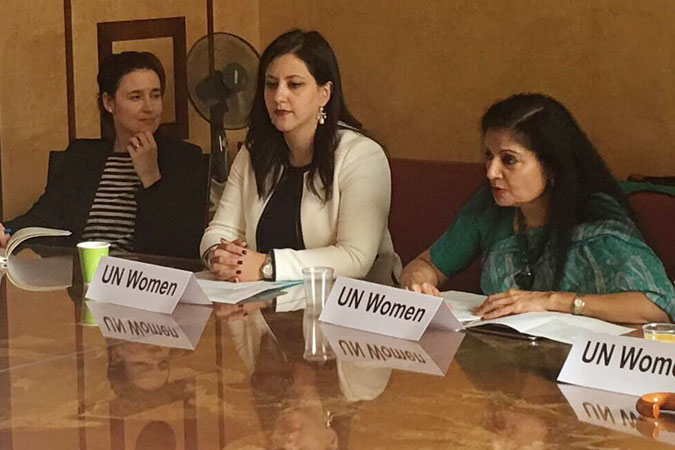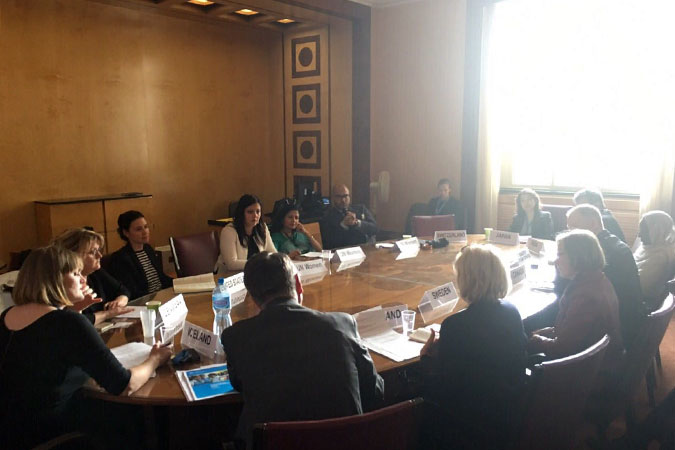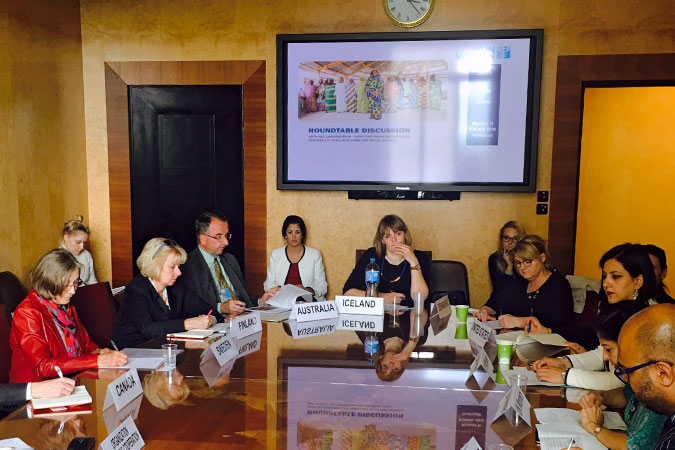UN Women Deputy Executive Director Lakshmi Puri discusses gender equality in crisis situations with key Ambassadors in Geneva
Date:

In a high-level roundtable discussion with UN Women Deputy Executive Director Lakshmi Puri, Ambassadors and representatives of Member States in Geneva discussed accelerating progress towards the 2030 agenda in the context of increasing vulnerabilities and crises.
The meeting on 26 April was attended by Ambassadors from India, Finland, Sweden, Australia, organization for Islamic Cooperation, Japan and Denmark, along with representatives from Iceland, Canada, Germany and the USA.

Conflict puts sustainable development at risk and can roll back gender equality and women’s rights gains. For example, in Syria, six years of conflict has eroded 40 years of development gains. The unprecedented levels of displacement, and the increasingly protracted nature of displacement, has jeopardized the achievement of gender equality and the Sustainable Development Goals in the region.
The participants shared the challenges they face in translating the SDG agenda from Geneva and New York to national and local policies. Many emphasized the need to bridge the gap between humanitarian action and development, in order to benefit women, children and affected communities in situations of crisis, and the need to sustain long-term funding for gender equality and women’s empowerment.

In her remarks, Ms. Puri highlighted the benefits of a unified approach: “Together, we have to continue to seek recommitment, consolidation and implementation to ensure gender mainstreaming is translated into implementation. We call you to continue to step up for gender equality and work together to achieve this transformative change that is not only a rights imperative but also an effectiveness imperative”.
Ms. Hiba Qasas, Chief of Crisis Preparedness, Prevention and Response at UN Women Geneva, hosting the meeting, noted the importance of crisis preparedness, prevention and response efforts, and stressed on the need to join forces to address the gender-specific vulnerabilities and to leverage women’s leadership.
With only 13 years left to achieve the 2030 Agenda for Sustainable Development, and in line with the new UN Secretary-General’s vision to put the UN at the forefront of the global movement for gender equality and women’s empowerment, the meeting provided an important platform to bring partners together for concerted action.